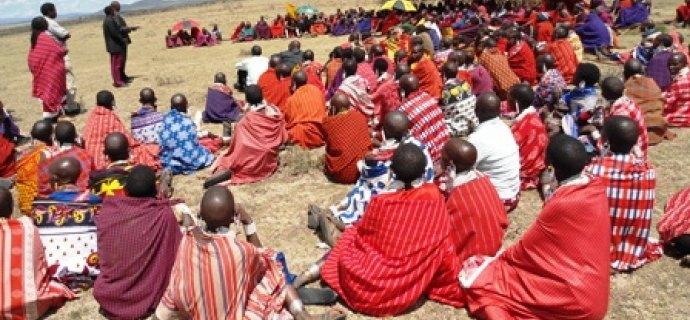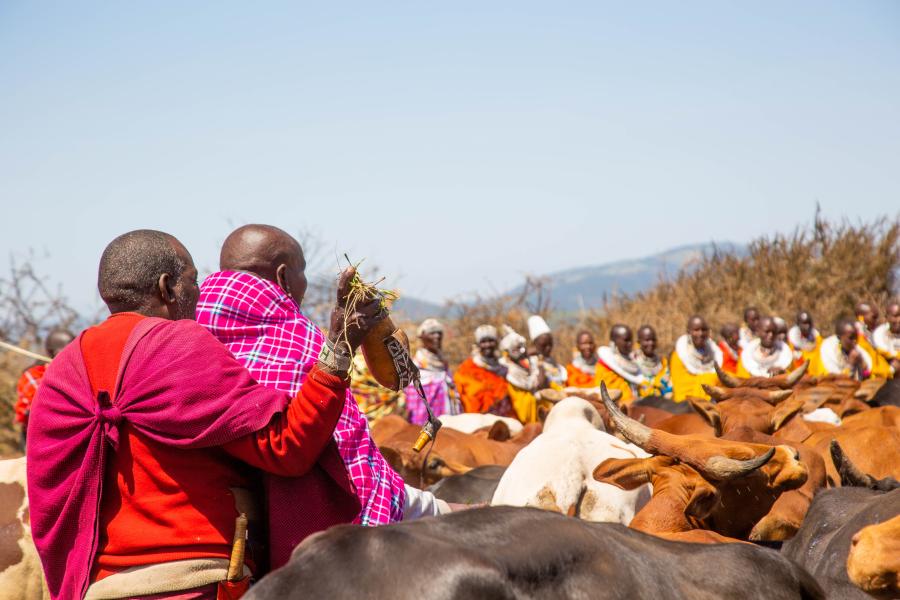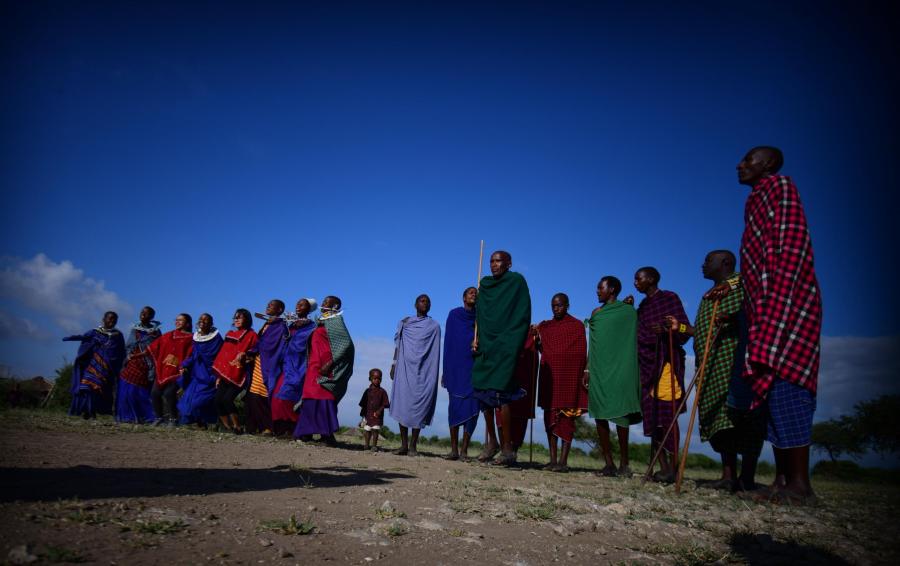
APRIL 21, 2014, BOSTON — A high-end safari operator must turn over documents and testimony about alleged land-grabbing and violence to the leaders of three Maasai villages in Tanzania, according to an order issued on April 18, 2014 by a federal magistrate judge in Boston. The villagers, assisted by EarthRights International (ERI), petitioned to receive this evidence in order to support their fight in the Tanzanian courts to recover land that they lost to Thomson Safaris and damages for violent abuses and property destruction.
The villagers’ struggle with Thomson began in 2006, when Tanzania Conservation Ltd. (TCL) acquired 12,617 acres of land known as Sukenya Farm that originally belonged to the Maasai communities of Mondorosi, Soitsambu, and Sukenya. TCL is owned by the same American businessmen as Thomson Safaris, a Watertown-based company that runs luxury tours on the disputed property, which it has developed into a private nature reserve. According to the lawsuit in Tanzania, company security guards and police officers burned Maasai homes and beat villagers who tried to gain access to the land. TCL’s occupation of Sukenya Farm – which the villagers believe to be illegal – has blocked the Maasai communities from vital water sources and contributed to their impoverishment.
Under the court order, Thomson Safaris and its owners, Rick Thomson and Judi Wineland, will turn over documents and give sworn testimony about the sale of Sukenya Farm, the alleged home burnings and beatings, and the conversion of the land from Maasai grazing territory to a deluxe private reserve. “We believe the evidence will show that TCL and its owners knew they were buying the land illegally, and that they were complicit in the abuses the Maasai communities suffered,” said Rashid Salim Rashid, who represents the villages in their lawsuit in Tanzania, with support from Minority Rights Group.
“This is a big day for our communities,” said Daniel Ngoitiko, elected councilor of Soitsambu Ward. “The court’s decision means that U.S. companies can’t come to our home, steal our land, and abuse our people without facing accountability in their own home.”
Friday’s decision was issued under 28 U.S.C. § 1782, a law that allows people to obtain documents and information from individuals or companies in the United States to support foreign legal proceedings. “That’s exactly why this law exists: so that people and companies in the U.S. can’t hide information about the wrongs they commit abroad,” said ERI Staff Attorney Marissa Vahlsing. Under the court order, Thomson Safaris and its owners must turn over all documents by May 9 and give sworn testimony before the end of June.
Marissa Vahlsing (USA), +1 (202) 466 5188 x111, marissa@earthrights.org
Lucy Claridge (UK), +44 7866 741922, lucy.claridge@mrgmail.org


